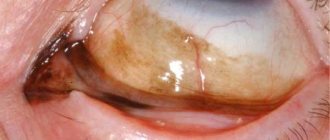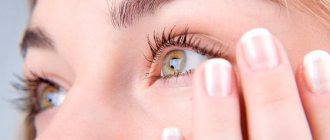In those frequent moments when drug treatment of glaucoma cannot boast of positive results, doctors have to use surgical methods. Today, there are several ways to cope with eye disease. But regardless of what type of operation the doctor or the patient himself prefers to choose, they will be aimed exclusively at reducing high pressure inside the eyes as much as possible.
Surgery for glaucoma is an excellent solution. If blood flow to the nerve of the eyeball is restored and the pressure drops, this may mean that the operation was successful. But, unfortunately, this procedure may take up to several months for the final result to become clearly visible and understandable to the common person.
When is surgery required?
The answer to the question “to do or not to have surgery” can only be obtained after a thorough diagnosis of the disease. Examination using equipment allows you to determine the type and stage of pathology and possible complications. Increased intraocular pressure is not always a direct indication for the installation of a drainage shunt or other types of intervention in the ocular apparatus.
At the initial stage, it is recommended to treat this disease with different types of drops. Over time, they help reduce pressure, stop the process of falling visual acuity and narrowing of fields. If medication methods do not help and no positive dynamics are observed, drainage installation is prescribed.
Surgery is indicated in the following cases:
- blindness, in which a person sees only a blurred outline;
- blood pressure remains high even with regular and long-term use of drugs;
- the patient’s inability or desire to apply eye drops regularly;
- fields of vision narrow, and the person sees only a small picture (this symptom indicates the destruction of the nerve);
- pain syndrome is present;
- deterioration of vision with normal intraocular pressure.
Attention! The modern pharmacological market offers a large number of drops that bring blood pressure back to normal. Some of them have contraindications and serious side effects that worsen the prognosis for glaucoma. Self-medication is unacceptable; pharmacological drugs can only be used with the permission of the attending physician.
Early postoperative period
Within 10 days after glaucoma surgery, you need to pay attention to important aspects:
Dream. It is recommended to sleep on the side opposite the operated side. Sleeping on your stomach or on the recently operated side of your face can cause poor circulation and poor circulation of aqueous humor in the eye.
Surgery for glaucoma: preparatory stage
According to one of the classifications, pathology is of two types - chronic and acute. In the first case, vision decreases gradually and slowly. The patient has time to undergo examination and treatment with drops. In the second, the decline in vision is rapid; irreversible blindness can occur within 1-2 days. Such patients require urgent medical care. The doctor does not have time to prepare the patient for surgery. Anesthetics and antibiotics are instilled into the eyes, after which the procedure begins.
Diagnosis before treatment
The first stage is a thorough examination of the visual organ. Using special equipment, the visual field and its acuity are checked, and the pressure is measured several times. You also need to take tests to determine other pathologies. If foci of infection are detected, measures are taken to eliminate them.
5-7 days before surgery, you must stop taking a number of medications, a list of which will be provided by your doctor. When treating elderly patients, relatives should monitor this. Otherwise, the effect of the operation will be small or absent altogether. The procedure is performed under local anesthesia. In the absence of individual intolerance, adrenaline and lidocaine are used - drugs that have a pronounced analgesic effect and reduce blood loss.
Eye health for those staying at home (extracts)
Section 9. Eye problems that can be treated at home.
(Home Remedies for Simple Eye Problems).
Access to text via link
Posted by Odalys Mendoza MD May 2020
Some eye problems can be treated at home.
Many eye problems require specialist help. But there are eye problems that you can safely treat at home, as long as they are simple. Here are a few such problems.
"Black eye"
Typically, a black eye can be treated at home. But if there are more serious symptoms accompanying a black eye, consult an ophthalmologist. These signs include:
- blurred vision;
- blood in the eye;
- inability to move the eye.
To reduce swelling and relieve pain on the first day, apply an ice pack to your eye for 15 to 20 minutes every hour. If you don't have an ice pack, use a bag of frozen vegetables or ice cubes wrapped in a cloth. The fabric protects the skin from freezing. Do not put raw meat in your eyes. Bacteria in raw meat pose a high risk of infection.
pink eye
(also known as conjunctivitis)
A virus causes most cases of pink eye. Ask an ophthalmologist to diagnose your specific case. Reduce the discomfort of conjunctivitis by applying cool compresses to your eyes.
If you have bacterial conjunctivitis, follow your treatment plan. This is usually done using antibiotic eye drops. In any case, you should take steps to reduce the likelihood of passing the problem on to someone else. Conjunctivitis is highly contagious. Follow these tips to prevent the spread:
- Do not share towels, handkerchiefs or cosmetics.
- Change your pillowcases often.
- Wash your hands often.
Eye allergies and seasonal allergies
Just as you can get allergies in the form of a runny nose, you can get eye allergies, which make your eyes red, itchy, and watery. Limiting exposure to the source of the allergy—pollen, pets, or mold—may help relieve symptoms. If you cannot completely remove the source, there are ways to reduce its effect through eye allergy treatment.
If pollen bothers you:
- Don't use a window fan, as this could blow pollen into your home.
- Wear sunglasses when you go outside.
If the problem is dust:
- Use bedspreads to reduce allergens on your bed.
- Use artificial tears, which temporarily wash away allergens from the eyes.
- Use over-the-counter allergy eye drops to reduce symptoms.
Barley
Although a stye may look unpleasant, it is usually harmless and goes away within a week. You can treat it at home by rinsing the cloth with warm water, wringing it out, and applying it to your closed eye. When the compress has cooled, repeat it several times. Do this three to four times a day for at least a week. The heat will help open the pores in the eyelash area. Do not wear eye makeup or contact lenses while you have a stye. And don't squeeze out the stye. This can cause the infection to spread to surrounding areas of the eye.
Eye strain
Many people experience symptoms of eye strain due to long hours of daily computer use, reading and driving. In most cases, there are simple things you can do at home, at work, and while driving to relieve the symptoms of eye strain.
This includes:
- rest for the eyes,
- using artificial tears,
- wear computer glasses, and
- wear sunglasses.
Use common sense
For any of these conditions, contact your eye doctor immediately if symptoms worsen or do not go away, or if your vision deteriorates.
Some eye problems should never be solved on your own
If you experience any of these, you should seek medical help immediately:
- Blurred vision
- Double vision
- eye pain
- Serious eye injuries.
As with any medical problem, the sooner you seek medical help, the better your chances of a favorable outcome.
Section 10. Quick eye care for pink eye
(Quick Home Remedies for Pink Eye).
Access to text via link
Posted by Dan T. Gudgel March 2019
In most cases, pink eye will disappear on its own within a week or two. Whether you can get rid of pink eye (also known as conjunctivitis) at home depends on what kind of pink eye you have and how severe it is.
You should contact your ophthalmologist immediately if:
- You are in pain or have trouble seeing
- You become sensitive to light
- Your symptoms last a week or more or get worse.
- Your eye produces a lot of pus or mucus.
- You have other symptoms of infection, such as fever or pain.
Pink eye is a common cause of school absence and can spread quickly in schools. Make sure your children know how to avoid pink eye and other infections.
Measles and pink eye
As measles makes a comeback among unvaccinated children, it is important to know that pink eye can be a symptom of measles. Pink eye may appear before the measles rash or at the same time.
Ask the following questions about whether pink eye could be a sign of measles:
- Is there a measles outbreak reported in the area?
- Has the child been vaccinated against measles? If so, it is unlikely that it is measles conjunctivitis.
- Are there other symptoms of measles, such as a red, blotchy rash or high fever (above 104 degrees Fahrenheit/40 Celsius)? Note that other types of pink eye can also cause fever, especially in children. Thus, a mild fever or increase in temperature in itself is not necessarily a sign of measles.
- Is the child sensitive to normal indoor light? Sensitivity to light is more likely to be a symptom of pink eye caused by measles. Sensitivity to indoor light is always a sign of a serious eye condition, usually associated with sight-threatening damage to the cornea. You should see an ophthalmologist, not just a general practitioner or pediatrician.
If you think you or a loved one may have pink eye associated with measles, contact your ophthalmologist immediately and be sure to notify local health authorities. In some cases, measles can damage the cornea, retina, or optic nerve and lead to vision loss or blindness.
What can you do at home for pink eye?
If you wear contact lenses, stop wearing them while your eye is pink. Use a new pair when you return to your contacts. Your old contact lenses are likely infected, and you could get sick again if you wear them again.
You should also avoid eye makeup if you have an infection. Throw away your old eye makeup and apply new makeup when your eyes are healthy.
If one or both of your eyes are red and uncomfortable, it could be a pink eye allergy, viral pink eye, or bacterial pink eye. Sometimes it's easy to tell what kind of pink eye you have, and sometimes only a doctor can determine the cause of the problem.
Antibacterial and Antiviral Home Remedies for Pink Eye
Viral pink eye is similar to a cold. Viral pink eye should disappear within a week or two without treatment.
Bacterial pink eye usually produces more mucus or pus than viral or allergic pink eye.
To reduce symptoms of bacterial or viral pink eye, you can:
- Take ibuprofen or another over-the-counter pain reliever.
- Use over-the-counter moisturizing eye drops (artificial tears).
- Cover your eyes with a warm, damp cloth for a few minutes. Repeat several times.
Home Remedies for Pink Eye Allergies
If your conjunctivitis is caused by an allergy, it is important to identify and stop the source of the allergy. Allergic pink eye is not contagious.
To reduce the symptoms of allergic pink eye, you can:
- Take medicine or eye drops for allergies.
- Cover your eyes with a cool, damp cloth for a few minutes.
- Use over-the-counter lubricating eye drops (artificial tears).
What not to do if you have pink eyes
No matter how pink your eye is, don't use redness-reducing eye drops like Visine. These eye drops may make your symptoms worse.
Viral and bacterial pink eye can spread very easily—as easily as a cold. If you have an infection in only one eye, be careful not to spread it to the other eye. And be careful not to spread the infection to people.
How to Avoid the Spread of Pink Eye
Basic hygiene rules are enough to prevent the infection from spreading to other people or to the other eye.
- Change your pillowcases and sheets every day.
- Use a fresh towel every day.
- Wash your hands often, especially after touching your eyes.
- Do not wear contact lenses until your eyes are normal.
- Don't share anything that touches your eyes.
Breast milk for pink eye?
Blogs and social media posts sometimes recommend putting breast milk in your baby's eyes if they have pink eye. There is no scientific evidence to support the idea of using breast milk for pink eye, and it may be more harmful than beneficial. Eye infections in young children can be very serious—even blinding. Do not delay seeing a doctor and do not rely only on folk remedies.
Bloggers who recommend breast milk for pink eye say the substances in breast milk can treat the infection and relieve inflammation. But one of the few studies looking at whether breast milk can fight infections not only found that it doesn't cure the most common causes of pink eye—but milk may also disperse bacteria into the eyes.
There is a lot of bad advice on the Internet about pink eye. Never put anything in your eye that is not recommended by your doctor. Foods and herbal extracts are not sterile and can significantly worsen eye conditions.
Section 11: Simple ways to soothe dry eyes.
(Simple Ways to Soothe Dry Eyes).
Access to text via link
Posted by Kierstan Boyd February 2018
At some point, almost everyone experiences the feeling of grit and discomfort when their eyes become too dry. But for some people, dry eye is more than a temporary irritation. This is an ongoing problem called ocular surface disease, or dry eye syndrome, that requires ongoing treatment.
Dry eye syndrome is a very common condition. This happens when your eyes don't produce enough tears or the right quality of tears. Anyone can develop dry eye syndrome, although it is more common in women, especially after menopause.
Dry Eye and Your Living Environment
Where you live can play a role in the development of dry eye. For example, people living in large cities with high levels of air pollution may be more likely to suffer from dry eye symptoms than those living in areas with less air pollution. A study of U.S. military veterans found that people in and around Chicago and New York City were three to four times more likely to be diagnosed with dry eye syndrome compared to people in areas with relatively little air pollution.
The same study found that people living at higher altitudes (floors), where the air tends to be drier, were 13 percent more likely to develop dry eye syndrome than people living on lower floors.
Based on the results of these studies, eye doctors recommend that dry eye sufferers who live in foggy cities or very dry climates use certain tactics to help control their symptoms.
In particular, they offer:
- using a high-quality air filter at home in large cities or other areas with heavy air pollution, and
- Using a humidifier in the home to humidify dry air.
Here are some more ways to minimize environmental influences on dry eye symptoms:
Protect your eyes in windy conditions
If you frequently travel in windy areas, wear sunglasses to reduce the chance of wind blowing directly into your eyes and drying them out. Remember that fans and hair dryers can dry out your eyes, so limit your exposure.
Avoid cigarette smoke
Keep in mind that cigarette smoke can irritate your dry eyes. Smoking can also increase your risk of developing dry eye. Stay away from smoke.
No matter where you live, the following tips can help you manage your dry eye symptoms:
Rest and blink often
Working on a computer, reading, or watching TV can dry out your eyes. This is because you are not blinking as often as usual. Take breaks every 10 minutes, rest your eyes, and try to blink more often to help your eyes regain lost moisture.
Try artificial tears
«Artificial tears are available without a doctor's prescription. Use them as often as you need, but if you find yourself using them more than once every two hours, you can use preservative-free tears. Moisturizing gels can also help. Because they are thicker and blur your vision, you should use them before bed.
Supplementing your diet with omega-3 fatty acids may also help.
Some people find relief from dry eye symptoms by adding omega-3 fatty acids to their diet, found in foods such as fatty fish (salmon, sardines, anchovies) and flax seeds. Ask your ophthalmologist if you should take an omega-3 fatty acid supplement, and if so, how much and in what form.
Treat your eyelids to improve tear quality
Warm compresses on the eyes can help release oil in the glands of the eyelids, which can help improve the quality of your tears. Also, wash your eyelids thoroughly with a clean washcloth, soap and warm water, and then rinse your eyes thoroughly.
If you are determined to manage your dry eye symptoms, talk to your eye doctor to determine the best course of treatment for you.
Section 12. Tips in case of “blood vascular network” on the eyeball
(Over-the-Counter Solutions for Bloodshot Eyes).
Access to text via link
Posted by Kate Rauch October 2017
What causes red eyes?
Most of us have experienced red eyes. They may look unpleasant, with pink or red streaks on the conjunctiva and sclera. Bloodshot eyes can also cause discomfort such as itching, watering and burning.
Red eyes are usually caused by an external irritant (called an allergen), e.g.:
- pollen (hay fever)
- chlorine from swimming pools
- pets
- dust
- form
- cigarette smoke
- perfume
To fight the irritant , your eyes produce a substance called histamine, which dilates and inflames the tiny blood vessels under the surface of the eye.
Many cases of redness are harmless and can be treated well at home. The best thing you can do is find out what allergen is causing your red eyes and avoid it. But some causes of red eyes require medical diagnosis.
So if you have a red or bloodshot eye, what should you do? What can you do at home and when should you see a doctor?
Brenda Pagan-Duran, MD, an ophthalmologist in New Jersey, has some tips to help you make your decision.
You should see a doctor if your eyes are red and...
- oozing or encrusting yellow, brown, or green mucus. This may be a sign of an infection that requires emergency medical attention.
- you experience pain in or around the eyes or unusual sensitivity in these areas.
- you have unusual sensitivity to light.
- you have a fever or general malaise.
- redness or discomfort lasts more than a week after you try home remedies.
- your child contracted conjunctivitis (pink eye) at school or camp.
If you have bloodshot eyes but don't have any of these more serious symptoms, there are a few home remedies you can try:
- Using over-the-counter artificial tears. These drops relieve irritation and wash away allergens from the eyes. Use them up to four times a day.
- Using over-the-counter antihistamine eye drops, especially if you are prone to seasonal allergies. These drops help relieve itching.
- Decongestants. These eye drops reduce redness in the eyes. Avoid using these drops for more than three days. Long-term use may worsen the redness (called "recurrent redness").
- Apply cool compresses or washcloths to your closed eyes a couple of times a day.
- Avoid triggers (irritants) such as smoke, fumes, pollen, dust, chlorine, or pet dander. If you don't know what's irritating your eyes, consult an allergist. They can test you to see what you are allergic to.
- If household mold is causing red eyes, clean the house.
- Wash your hands often, avoid touching your eyes unless you have already washed your hands, and use clean bedding and towels daily.
- If home remedies don't help after about a week, you may have an eye infection. Red eyes are caused by two main types of infection—viral and bacterial. Also fungal eye infections, which are less common.
Glaucoma surgery at Professor Trubilin’s Clinic
Our clinic uses gentle surgical methods that are used at any age. NGSE (non-penetrating deep sclerectomy) does not require opening (incision) of the eyeball, which speeds up the recovery process at the end of the procedure. This method was modernized by Professor V.N. Trubilin, is carried out on the drainage system of the organ of vision.
The postoperative period in most patients passes without complications. During the operation, the principles of viscosurgery are used. Implantation of drainage allows fluid to drain out, which helps reduce pressure. This helps stop the death of light-sensitive cells.
In the later stages of the disease, an Ex-Press microshunt is installed. Implantation of a miniature drainage is indicated for those patients in whom NGSE surgery has failed. The microshunt is placed under the sclera and is subsequently not felt and does not cause discomfort. This method allows you to create an additional pathway for the outflow of intraocular fluid. The effectiveness of the operation can be compared with trabeculectomy, but the installation of drainage is safer and less invasive.
Contraindications
There are a number of diseases of organs and systems for which surgical intervention is not recommended. It can aggravate the course of the disease and cause the development of other pathologies. The main contraindications include:
- ocular herpes;
- low immunity;
- retinal detachment;
- progressive myopathy.
It is necessary to plan surgical intervention with caution in the presence of malignant neoplasms in the body. Infectious or viral diseases also carry additional risks. It is necessary that the patient fully recover, which will be confirmed by laboratory tests. If there are no contraindications, the doctor sets a date for the procedure and gives recommendations on how to prepare for it.










